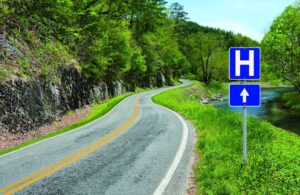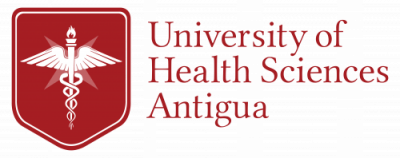RURAL AND REMOTE COMMUNITIES NEED DOCTORS

For those who read my blog, or who have been my student, you know that I am a big proponent of healthcare for rural and remote communities in the United States as well as elsewhere. Having lived and worked in rural and remote communities for the bulk of my career, I know the challenges and opportunities in providing care to those who live and work there.
Doctors are in high demand in rural communities, and I have written a whole blog about that which you may want to read. This is true in the United States, as well as abroad, including Australia, New Zealand, and more. In fact, I have a great post on why you should practice medicine in Australia that I would encourage you to read.
It can be easier to land your ideal position in a community in a rural area than in an urban area where competition for patients is fierce. As such, I frequently encourage students to consider working in these communities for a variety of reasons.
MANY SPONSOR J1 VISAS
For foreign medical graduates remaining in the United States following their residency training is a dream that requires a J1 visa. But not all jobs can sponsor such, particularly if the job is a large urban area where there is no doctor shortage. In contrast, many rural communities, because they are located in Federally designated healthcare shortage areas, can sponsor the appropriate visa for physicians and their families which can lead to a green card and even citizenship.
LOAN REPAYMENT
Rural communities often have loan repayment options, including government and local programs, to help physician repay their qualifying school loans. Read my recent post about loan repayment to learn more.
BIG FISH, LITTLE POND
I remember years ago my sister, who is a medical academic, asked me if I would rather be a little fish in a big pond, or a big fish in a little pond? When I reflected on this, I decided it was better to be an important member of the community, even if that meant the community I was part of was small.
I don’t know many docs that have gone to NYC or Chicago that ended up serving as the personal physician to the president of a Pacific island nation? But guess what I did? I think you get the point.
In all my travels, I have found that there is a sense of community involvement and connectedness in smaller communities that is lacking in the big city.
I like being called “doc” in the grocery store while the clerk brings out a fresh carton of just arrived peaches for me to choose from because I had reassured him that the fever his son had was nothing to be concerned about last week.
I like getting a dozen freshly baked pastries delivered to my front door by the local baker because I sewed up a laceration in his hand the previous evening after hours.
Or always, and I mean pretty much always, I like being upgraded to business class on my Pacific island journeys because the purser knows me from the small community I serve, and I had helped him out on a flight one night over the Pacific in a typhoon when a woman lost consciousness and the big city docs who were on vacation refuse to help for fears of being sued.
FULL SPECTRUM CARE
Most docs who work in big cities will have learned things in residency that they will never use again. Take family medicine as an example. Family medicine graduates will deliver babies in their residency years; but few will do so in practice. That’s not the case in small towns where the only provider of obstetrics may be the family doctor.
So, if you love everything about medicine, and want to do a little bit of everything, then a rural community could be right for you. For that matter, family medicine is probably right for you. Read more about a career in family medicine from one of my older blog posts. It really is a great career, and the perfect match for smaller towns.
FINDING RURAL DOC JOBS
But, you may be asking, where do I find doc jobs in small towns and rural communities? Fortunately, there is a nonprofit organization serving the physician recruitment needs of rural American which maintains a database of these jobs.
The National Rural Recruitment and Retention Network, better known as 3RNet, is a centralized database of rural physician and allied health positions.
It is free to register, and will give you access to the database. It will also give you access to the medical recruiters in each of the fifty states plus the territories who have links to more jobs as well as the ability to help you access loan forgiveness for working in smaller towns. All of these services are free. Recruiters, whether private or working for the state, will never charge candidates a fee for their services.
LIVE YOUR DREAM OF BECOMING A PHYSICIAN
As the second oldest private medical university in the Caribbean Basin we know what it takes to succeed.
Whether you want to practice internal medicine, family medicine, general surgery, or any of the multiple specialties that make a difference in the lives of patients every day, UHSA can help you live your dream!
Accelerated Premedical Program
If you are a high school graduate, or a university graduate who lacks the premedical pre-requisite courses, why not join our premedical program? It will give you all the credits you need to be promoted to our world-class MD program.
If you are a university graduate who has the premedical pre-requisites, then look at direct entry into our MD program, where you will learn to be not only a physician, but a healthcare leader.
Earn Your MD and Masters of Public Health
We also offer a joint MD/MPH program. Our joint MD/MPH program is great for those who want to enhance their credentials when applying for residency, want to enter a primary care residency program that values prevention, want to undertake training in preventative medicine, or who want a career in global public health.
Contact our admissions team to learn more about living your dream!

